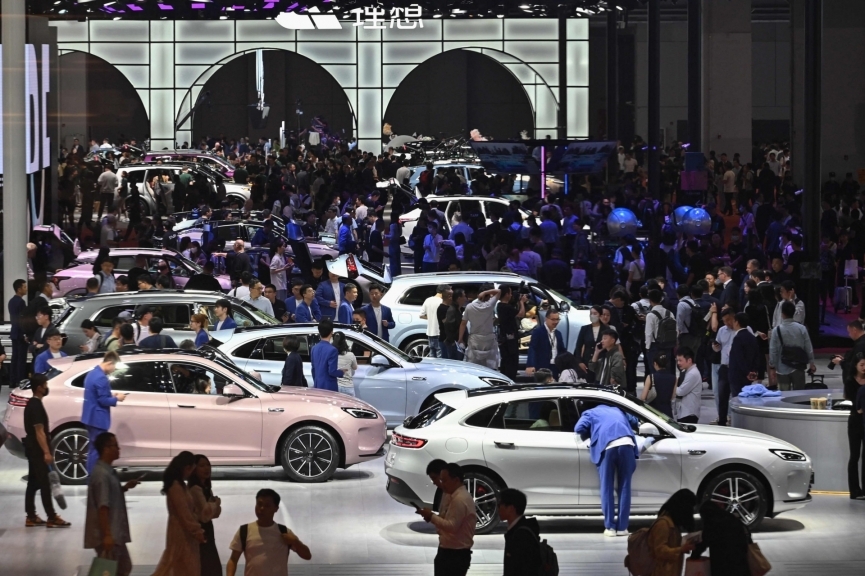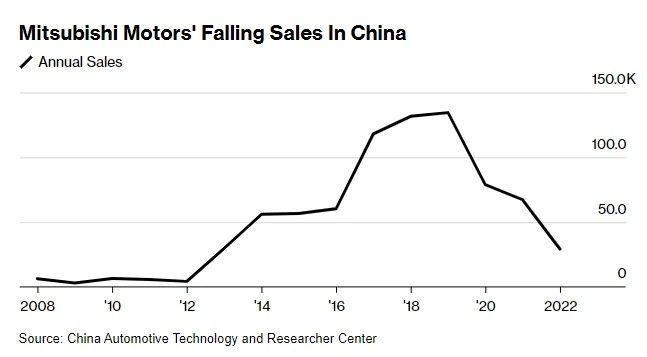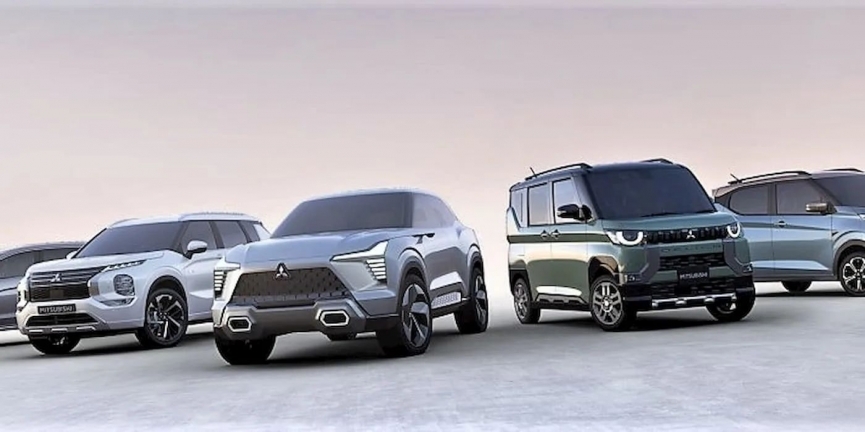Copyright ©2021 VINAMR All Rights Reserved
23 Jul 2023
Under pressure from domestic vehicles, along with hesitancy in spreading electric vehicle, Mitsubishi has been forced to discontinue car production in China.

Currently, China continues to be the industry leader in transition to electric vehicles. Data from the China Automobile Manufacturers Association (CAAM) showed that sales of battery-powered passenger vehicles (BEVs) reached more than 2 million units in the first five months of the year, increased by 51.5% compared to the same period last year.
Meanwhile, CAAM reported a 7% decrease in sales of vehicles using internal combustion engines during the same period. Many analysts believe this trend will continue to spread. Some analysts predict that this number could increase by up to 50% in the next two years.
The drastic shift is happening since the Chinese government supports the transition by offering tax deduction for EV buyers and other benefits and policies, boosting growth for domestic EV automakers.
Concurrently, Chinese authorities are making difficulties in buying cars using fossil fuel. The country is imposing stricter emissions standards for vehicles, pressuring automakers to transit products and phase out vehicles using fossil fuel (ICE).
The new regulation will forbid the manufacture, sale and import of vehicles that do not comply with legal regulations, putting pressure on domestic and foreign automakers to make transition to clean energy vehicles.
Mitsubishi and Japanese automakers lagging behind
According to Bloomberg, citing a Mitsubishi memo report, the automaker’s sales declined sharply since the Chinese auto market shifted to electric vehicles, forcing the Japanese automaker to suspend operations in the country indefinitely.

“Over the past few months, management and shareholders put greatest possible effort, but due to market conditions and with reluctance to transition and regret, we must seize the opportunity to transition to new energy vehicles, the company will revive after going through the challenges” indicated the memo report.
Mitsubishi suppose that China’s aggressive transition policy to clean energy vehicles is the reason their sales decreased, much lower than expected.
After peaking in 2019 at around 134,500 vehicles, Mitsubishi’s sales sharply fell, with only 34,500 vehicles sold last year. Their only EV model, the electric SUV Airtrek, sold just 515 units.
Mitsubishi isn’t the only Japanese automaker to be lagging behind because of its hesitancy in developing electric vehicles.
Sales of popular automakers such as Honda, Mazda and Nissan have fallen for two consecutive years, and in 2022, Japan’s largest automaker, Toyota, has sales declined for the first time in a decade.

Mazda CEO Masahiro Moro has a similar announcement to Mitsubishi about China last week, “Manufacture output will be low at the moment, meanwhile the pressure on profitability is higher and higher. Although Mazda has no plans to downsize, it is important to turn the tables and introduce each competitive electric vehicle”.
Witnessing the success of electric vehicle manufacturers such as Tesla and BYD, almost all Japanese automakers must plan to quickly transition to electric vehicles.
In March, Mitsubishi revealed plans to electrify its entire lineup by 2035, including 4 new electric models. Honda reorganized its businesses to make way for electric vehicles, while Nissan accelerated its strategy in February.
Toyota is currently planning its own specialized electric car platform and next-generation batteries are expected to improve range and efficiency.
To help boost domestic battery production, the Japanese government has invested nearly 120 billion yen ($847 million) on fuel supply for Toyota’s battery development plants.
Source: autobikes.vn